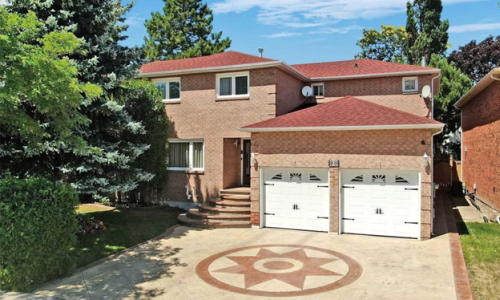
At the age of 18, Sahil Mehta assisted in the sale of his first property in the Berkeley, Calif., area, receiving a commission of roughly $2,000 in 2015. It reaffirmed his desire to pursue real estate sales and investments, which he has pursued ever since.
“It was such a great feeling,” Mehta tells us to Make It, “not because of the amount of money, but because of the sense of success.”
Mehta, who is only 25, now owns five investment properties for $9.4 million with his older brother. He also works full-time at Golden Gate Sotheby’s, where he assists with sales management and closing. Mehta worked at Sotheby’s while still a student at the University of California, Berkeley, to save money for his first home. In 2017, he and his business partner, his brother, purchased their first home for $950,000. Four of the properties are rented to college students and families, while one is used as an Airbnb. They earn roughly $25,000 per month from rent, which they share 50-50 after mortgage payments and property taxes. Mehta claims he was fortunate to find a job at Sotheby’s in college, which allowed him to save a significant sum of money while still in his early twenties. His day job is expected to pay him approximately $350,000 this year. He agrees that would-be investors need a lot of money to get started, and that buying homes is certainly easier when you can split the cost with someone else, which not everyone can do.
Also Check: 5 Common Mistakes to Avoid while Investing in Real Estate
Along the way, he’s also learnt some costly lessons. Mehta bought a duplex in January 2020 with the intention of turning it into a single-family home, but local housing laws prevented him from doing so. He thinks that he lost tens of thousands of dollars before renting out that property on Airbnb, and he now makes it a point to complete his homework before making a purchase. In the next years, Mehta and his brother intend to expand their property portfolio. They’re also putting money aside to buy their parents a house in California, which is close to them. It’s the least they can do for their parents, who came to the United States from India and worked hard to establish a secure future for their children, according to Mehta. He says, “There are no commensurate things I can do for what they’ve done for us.” “Without terms or anything, we will do whatever we can for them.”

For individuals interested in real estate investing, Mehta has four suggestions.
1. Choose a lane.
According to Mehta, the most crucial phases in real estate investing occur before you acquire anything. “It’s all in the planning stage,” he explains, “and then striking a deal when the pieces fall into place.”To begin, determine what you are truly interested in purchasing. Single-family homes, multi-family homes, commercial real estate, thousands of homes managed and REITs (real estate investment trusts) are just a few examples of real estate investments. And there are several ways to make money within each category, such as flipping houses, house hacking, and so on.
Each strategy has its own funding requirements and set of costs and dangers. Investing in a REIT is similar to purchasing a mutual fund and takes far less time and effort than renting a home. Purchasing real estate “gives you more control and responsibility,” which is riskier but can yield a better return, according to Mehta. “Select an appropriate solution based on your present financial situation, risk appetite, experience, and how involved you want to be,” Mehta advises. It’s helpful to know why you’re making a decision, he explains. Once you’ve done that, choose a plan that works with it. “Everyone has their own motivations and goals. It will be easier for you to navigate through the noise if you clearly define what that is for you.”
2. Perform the calculations
Real estate does not always generate profits. Every investor, according to Mehta, should “become an expert at estimating cash flow and achieving equity potential,” which he learnt at Sotheby’s. The difference between a property’s income and its expenses is known as cash flow in real estate. You might conceive of this as rent minus mortgage payments, but in a rental home, for example, that isn’t the only expense to consider. According to Mehta, there are additional running costs and savings for future improvements and emergency repairs. Mehta also thinks about how much additional value he can bring to a house by making physical changes. This could entail upgrading the bathroom or updating the kitchen. Mehta and his brother are currently working on building a second floor and unit to one of their houses’ backyards, which he estimates will add roughly $1.5 million to the property’s total worth.
3. Try something new.
Zillow, Redfin, and other internet real estate listing sites are open to the public. If you’re bidding on a house with a lot of other people, you’re not likely to get the greatest offer, according to Mehta. “To gain an advantage over the competition, you must think and work outside the box,” he explains. Mehta advises reaching out to sellers directly. “I bought my first two properties off-market by just driving through the streets of my favourite area and noticing for sale signs going up before the homes were even listed.” Connecting with local real estate brokers is also recommended by Mehta. They frequently know what will be listed before it is actually listed.
4. Maintain your composure.
Finally, as with any investment, you don’t want to allow your emotions get the best of you, according to Mehta. The market has been really hot recently. However, making rash purchasing selections can lead to financial problems down the road.
“Be laser-focused on it if you’re investing in rental property for the sake of a return on your money,” he advises. Always keep an analytical mindset. “In order for it to be worthwhile, the ROI must outperform alternative investment possibilities.”




